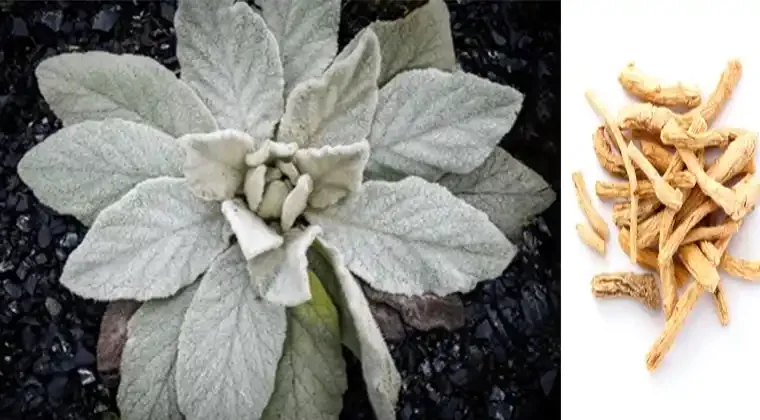In the world of herbal medicine, few plants are as gentle yet powerful as mullein (Verbascum thapsus). While its soft, fuzzy leaves and golden flowers often steal the spotlight for respiratory health, the roots of mullein hide a deeper, lesser-known secret — one that supports the lungs, lymph system, nerves, and joints.
Used for centuries in traditional European and Native American medicine, mullein roots offer a unique combination of anti-inflammatory, analgesic, and demulcent (soothing) properties. Let’s uncover how this ancient root can support modern health and wellness.
🌱 What Is Mullein Root?
Mullein is a tall, flowering plant native to Europe and Asia but now found worldwide. Every part of the plant — from the leaves to the flowers and roots — has medicinal uses.
The root, in particular, is rich in:
- Triterpenoid saponins – natural anti-inflammatory compounds
- Iridoid glycosides – known for their antioxidant and nerve-soothing effects
- Polysaccharides – support immune health and tissue repair
- Phenolic compounds – provide antimicrobial and antioxidant action
⚕️ 1. Supports Respiratory Health (From the Roots Up)
While mullein leaves are widely known for easing coughs and clearing mucus, the roots offer deeper support for the respiratory system.
They help strengthen the lungs and bronchial tissues, reduce inflammation, and support recovery after chronic respiratory infections.
👉 Traditional use: Native American herbalists used mullein root decoctions to soothe lung irritation and strengthen the respiratory tract after illness.
👉 Modern insight: Its anti-inflammatory compounds help reduce swelling in the airways, improving breathing and oxygen flow.
Best use: Mullein root tea or tincture can complement mullein leaf tea during seasonal allergies or persistent coughs.
💪 2. Eases Joint and Muscle Pain
Mullein root has long been used externally and internally to relieve joint pain, back pain, and arthritis.
- The root’s analgesic (pain-relieving) properties come from compounds that calm inflammation in tissues and nerves.
- It also helps the body remove excess uric acid, making it helpful for gout and other inflammatory conditions.
👉 Study note: A 2014 review in Pharmacognosy Research highlighted that mullein extracts possess strong anti-inflammatory and antioxidant activities, which can aid in tissue healing and pain reduction.
Best use: A mullein root poultice or oil infusion can be massaged on sore muscles and stiff joints.
💧 3. Strengthens the Lymphatic System
The lymphatic system is your body’s internal “clean-up crew,” responsible for removing toxins and maintaining immune balance.
Mullein root is considered a lymphatic tonic, promoting the drainage of fluids and reducing congestion or swelling (especially in the neck and throat area).
👉 Traditional use: Herbalists often recommended mullein root for swollen glands or lymphatic stagnation, particularly after infections or toxin exposure.
Best use: Drinking mullein root tea a few times a week helps support gentle lymphatic detox and immune function.
🧠 4. Soothes the Nerves and Promotes Balance
Mullein root is not only physical medicine — it’s emotional medicine too.
It acts as a mild nervine, helping calm tension, anxiety, and stress-related fatigue.
Some herbal traditions describe it as grounding and stabilizing, especially for those who feel “ungrounded” or energetically scattered.
👉 Why it works: The root’s polysaccharides and saponins nourish nerve cells and reduce oxidative stress, which can help restore nervous system balance.
Best use: A small dose of mullein root tincture or a soothing cup of tea before bed promotes calmness and emotional clarity.
5. Supports the Bladder and Urinary Tract
TO CONTUNUE READING THE ARTICL PLEASE SEE PAGE 2 .




